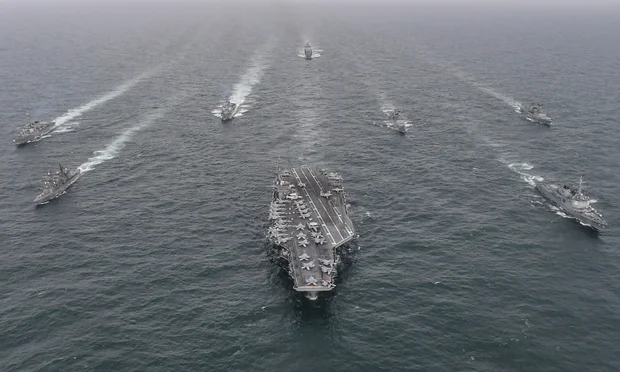GPS Jamming
SEOUL: North Korea’s GPS jamming attacks targeted South Korea over the weekend, with disruptions reported in several ships and dozens of civilian aircraft.
According to Seoul’s military officials, the jamming took place on Friday and Saturday, specifically affecting operations in areas around Haeju and Kaesong.
The joint chiefs of staff in Seoul confirmed that these attacks resulted in operational disruptions for vessels and aircraft in the region, particularly in the Yellow Sea.
The military has issued a warning to vessels and aircraft operating in these waters to be cautious of such provocations. They called on North Korea to immediately cease the jamming activities, threatening to hold the country responsible for any future disruptions.
This latest incident follows a series of escalating tensions on the Korean Peninsula. Just days earlier, North Korea had test-fired what it claimed to be its most advanced solid-fuel intercontinental ballistic missile (ICBM), marking its first such launch since accusations surfaced that North Korean soldiers had been sent to assist Russia in its ongoing war with Ukraine.
In response, South Korea fired its own ballistic missile into the sea, demonstrating its determination to counter any provocations from the North.
The tensions have been further amplified by North Korea’s increasing missile tests, which have violated United Nations sanctions.
In addition to the missile threats, North Korea has been launching balloons filled with trash across the border to South Korea since May, allegedly as a form of retaliation for anti-Pyongyang propaganda sent by activists.
The geopolitical situation has also become more complex as North Korea has aligned itself with Russia in the Ukraine conflict. There are reports that North Korea has supplied Moscow with artillery shells and missiles.
Intelligence sources suggest that North Korea has even deployed around 10,000 troops to Russia, deepening its involvement in the war. This development has sparked outrage in South Korea, Ukraine, and Western nations.
In light of North Korea’s support for Russia, South Korea is reconsidering its long-standing policy of not providing weapons to nations in conflict.
President Yoon Suk Yeol has stated that South Korea may no longer rule out the possibility of supplying weapons to Ukraine.
Moreover, South Korea has also experienced an uptick in cyberattacks from pro-Russian hacking groups, further exacerbating the situation.
These developments highlight the growing complexity of the international dynamics surrounding North Korea’s actions and the broader geopolitical tensions in the region.


